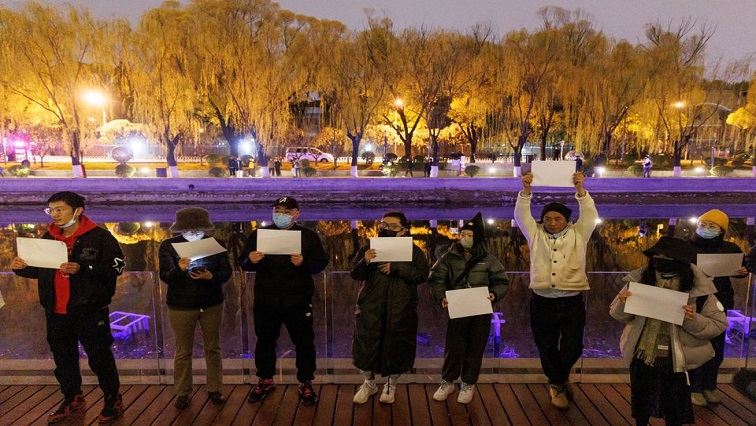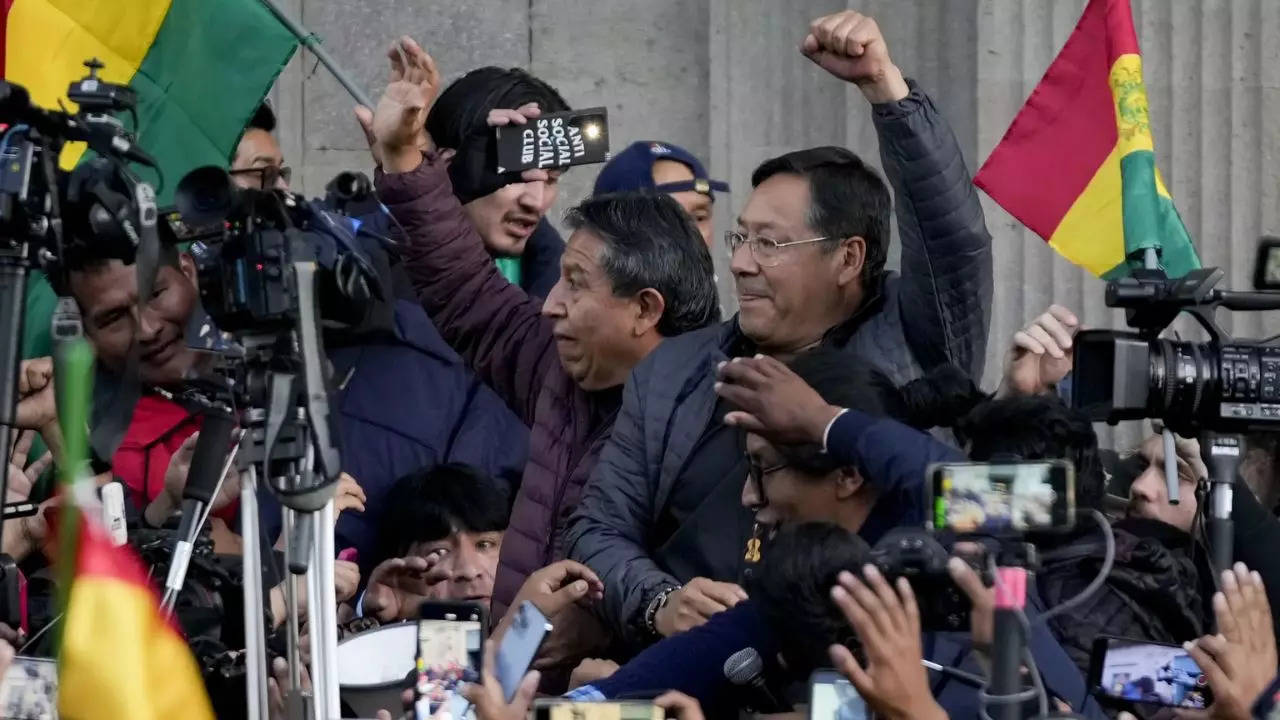Opponents of China’s COVID-19 crackdown are turning to dating apps and social media blocked on the mainland to avoid censorship and spread the word about their defiance and strategy in a high-tech game of cat-and-mouse with the police.
Social media users say that after the weekend protests, videos, images and stories of opposition to China’s tough COVID-19 crackdown appeared on China’s heavily censored cyberspace, and activists stored them on platforms abroad before than the censors removed them.
Protesters have taken to a number of Chinese cities for three days since Friday in an unprecedented display of civil disobedience since President Xi Jinping came to power a decade ago.
Frustration has been mounting over a strict zero-covid-19 policy nearly three years after the coronavirus emerged in the central city of Wuhan, but the spark for the wave of protests was a deadly fire at an apartment building in the western city of Urumqi.
Authorities have denied accusations on social media that the lockdown prevented people from escaping the fire, but it did not stop protests in the streets of Urumqi, videos of which were posted on social networks Weibo and Douyin.
Censors tried to clear them quickly, but they were downloaded and reposted not only on Chinese social networks, but also on Twitter and Instagram, which are blocked in China.
Residents in other cities and students on campuses across China then organized their own gatherings, which they in turn filmed and posted online.
“People are watching and playing along with each other,” said Kevin Slaten, head of research at the China Dissent Monitor, a database maintained by the US-based non-profit Freedom House.
State media does not mention the protests, and the government says little.
Asked about the protests on Tuesday, the foreign ministry said China is a country governed by the rule of law and all rights and freedoms of its citizens are protected, but they must be exercised within the law.
A senior health official said public complaints about the control of COVID-19 stem from overzealousness, not the measures themselves.
CRYPTIC COORDINATES
Protesters, who communicate through the most popular but heavily censored app WeChat, are keeping information to a minimum, according to online discussions about the strategy seen by Reuters.
The locations of planned gatherings are given without explanation, or given with coordinates on a map, or a dim map against the background of a pillar.
“It was the morning of the 27th when I received this secret tip: 11.27, 9:30, Urumqi office,” said one person who participated in the Beijing protest scheduled for that day and time outside the Urumqi municipal government office in the capital. .
Many people rely on virtual private network (VPN) software to bypass the Great Firewall of China and switch to encrypted messaging programs.
Cohesive networks of friends also trade information, adopting a decentralized model that some say was inspired by the 2019 Hong Kong protests.
Social media users say people have set up Telegram groups to share information about their cities, while messaging services on dating apps are also being used in the hope they face less scrutiny, according to one protester in Beijing. , who declined to be named, citing security.
Social media users reported that in the hours before protesters gathered in cities such as Shanghai and Chengdu, online flyers and pinned locations were widely shared on Telegram, Instagram and Twitter groups.
People are also using the platforms to share tips on what to do if they get caught, such as how to wipe your phone.
Police checked phones for VPNs and the Telegram app, according to residents and social media users. VPNs are illegal for most people in China.
PARODY
One Twitter account with nearly 700,000 followers called “Teacher Li is not your teacher” has gained a lot of attention for posting videos of protests from across China.
One Sunday, the account said: “Currently receiving more than a dozen applications every second.”
Internet users are also trying to get around the censor by parodies of patriotic posts or those showing an empty square, a reference to a blank sheet of paper, a symbol of protest adopted by the Chinese people.
One viral post on China’s popular WeChat app, which is used by more than a billion people, repeated the word good line after line, apparently mocking the tendency of the authorities and state media to present everything in a positive light.
The post was widely circulated before it disappeared.
Some WeChat users have posted clips of leaders such as Mao Zedong and Xi expressing support for free speech or popular uprising in speeches made under various circumstances that now seem appropriate to opponents of the zero-sum of COVID-19.
“Now the Chinese people are organized and cannot be messed with,” Xi says in one clip from a 2020 speech marking the 70th anniversary of China’s entry into the Korean War that was widely publicized on Monday.







